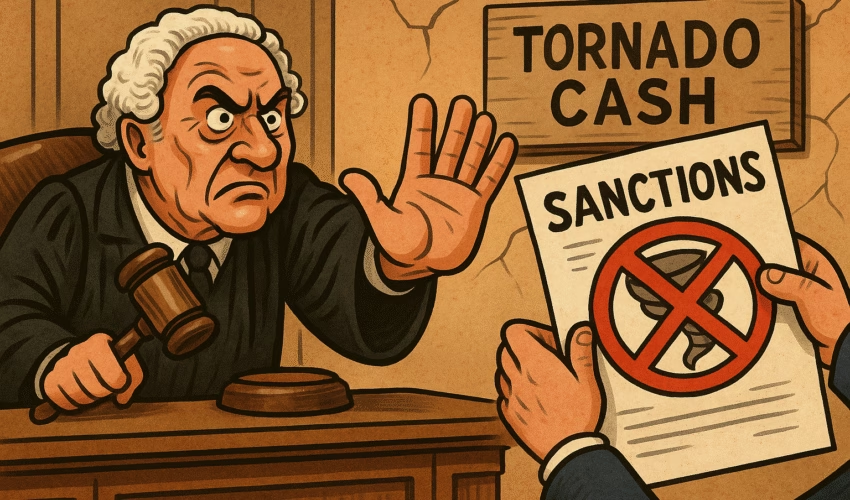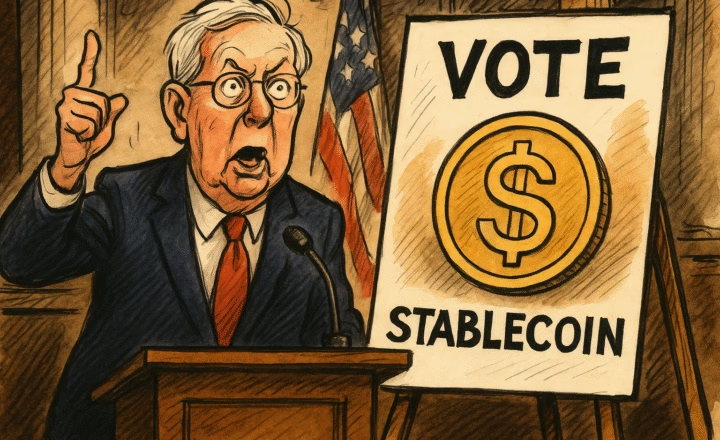Court Declares OFAC’s Actions Unlawful, Permanently Blocks Reimposition
A U.S. federal court has ruled that the Office of Foreign Assets Control (OFAC) within the U.S. Treasury Department can no longer reimpose sanctions on the crypto privacy tool Tornado Cash, delivering a major legal victory to privacy advocates and crypto developers.
In a decision handed down on April 28, Judge Robert Pitman of the U.S. District Court for the Western District of Texas declared OFAC’s 2022 designation of Tornado Cash as unlawful, and issued a permanent injunction barring the agency from enforcing sanctions against the protocol in the future.
“OFAC is permanently enjoined from enforcing sanctions on Tornado Cash,” Judge Pitman wrote in the ruling.
Background: Sanctions Over Alleged Links to North Korea
OFAC had sanctioned Tornado Cash in August 2022, placing its smart contract addresses on the Specially Designated Nationals (SDN) list and alleging the protocol had been used by North Korea’s Lazarus Group to launder stolen cryptocurrency.
However, in a lawsuit led by user Joseph Van Loon, plaintiffs argued that OFAC’s actions were an overreach, asserting that open-source code and smart contracts could not be legally defined as a “person” or entity subject to sanctions under existing law.
The case initially saw the Treasury win a partial summary judgment, but in a reversal, the Fifth Circuit Court of Appeals instructed the lower court to grant judgment in favor of the plaintiffs, resulting in the revocation of sanctions.
Although OFAC formally removed Tornado Cash from the SDN list in March 2024, it argued the case was moot. However, Judge Pitman’s ruling makes clear that the agency cannot attempt to blacklist the protocol again.
Implications for Crypto and Developer Rights
The ruling has far-reaching consequences for crypto developers and privacy tools, as it limits the U.S. government’s ability to sanction open-source protocols based solely on their usage by bad actors.
On the same day, the DeFi Education Fund submitted a petition to White House crypto advisor David Sacks, calling on the Department of Justice (DOJ) to drop its criminal case against Tornado Cash co-founder Roman Storm.
Storm is currently facing charges of aiding in the laundering of over $1 billion through Tornado Cash and is scheduled to stand trial in July 2025.
“The DOJ is trying to criminalize software developers for how others use their code,” the DeFi Education Fund said.
“This precedent threatens all open-source development in the U.S.”
Final Thoughts: Landmark Win for Code as Speech
The ruling in favor of Tornado Cash users sets a powerful legal precedent: code is not a person and should not be sanctioned as one. As the crypto ecosystem continues to battle over the boundaries of privacy, freedom of expression, and government oversight, this case may become a cornerstone in the legal defense of decentralized, open-source innovation.
With broader implications for how the U.S. regulates blockchain technology, the ruling underscores the urgent need for clarified legal frameworks that respect both national security and developer rights in an increasingly decentralized world.












